
As I reflect on the first three months of my Presidential year for IPA, I could not be more impressed by the energy and growth I have observed among our members and leaders. This association’s Executive Council Members, Committee Chairs and Co-Chairs, Committee Members, and Liaisons commit countless hours of volunteered time to IPA in addition to their active work and home lives. Additionally, IPA is fortunate to have devoted individuals serving in contracted positions (i.e., Executive Director, Director of Professional Affairs, Lobbyist, Training Director, Bookkeeper) who consistently exceed expectations in fulfilling their responsibilities to serve IPA members and to support the Executive Council. I appreciate this opportunity to highlight only a few of the many initiatives and accomplishments of these outstanding psychologists and professionals.
IPA’s Executive Council (EC) consists of 12 members who conduct the foundational business of the association through six Council meetings per year and numerous additional communications. I have been honored and grateful to serve with this group of thoughtful and committed psychologists whose overarching goal is to promote the needs and desires of membership and, ultimately, the individuals we serve. Each EC member dedicates seemingly tireless energy to their efforts to ensure IPA is serving its membership as effectively as possible. This amazing group of individuals deserves a wealth of gratitude for their volunteered time and leadership.
Although I could write for days about the various accomplishments of EC members, I will highlight only a few of their activities in this update. Over the past several years, in addition to their leadership responsibilities the Presidential Triad has been tasked with co-chairing the Program Planning Committee and organizing the Spring and Fall Conferences. Our Past President, Dr. Valerie Keffala, and President Elect, Dr. Nicole Holmberg, have spent hours of their time discussing possible themes, locations, and speakers for the Fall 2022 Conference and contacting possible speakers for an event that will focus on psychological concepts addressing evidence-based client care and provider self-care. In addition to this work, they have provided crucial support to the role of President in a multitude of ways, implementing a model of leadership initiated several Presidential Triads prior that has made this role sustainable and highly rewarding. I am immensely grateful for their wisdom and talents.
Serving as IPA Representatives to the EC, Dr. Scott Young and Dr. Katie Kopp work for members by sitting on committees within the association and bringing member concerns and feedback to the Executive Council. They have been active contributors in EC meetings and take seriously the importance of giving voice to IPA members.
As the IPA Representative to APA’s Council of Representatives (COR), Dr. Sally Oakes Edman is currently serving her sixth and final year before the Council’s bylaws require a change of the individual filling this position. She has spent a wealth of time contributing to the APA COR, including in-person and virtual meetings in which she has learned about and debated various regulatory considerations of the Council. She has also provided clear and helpful updates to our membership to inform our votes. Her service to the field of psychology and to IPA through this role has been much appreciated.
As our current IPA Student Representative/APAGS member, Eric Field has brought a high level of enthusiasm to EC and to additional committees where he is devoting his time. His efforts to keep students engaged in the association and to give them voice on EC are highly valued.
Serving as the Diversity Liaison to EC, Dr. Joyce Goins-Fernandez fulfills a crucial role in the association. She has made strong and specific efforts to bring attention to issues of diversity, equity, and inclusion on the Executive Council. Her ability to advocate for groups who have historically been marginalized, underserved, and oppressed is admirable and central to this organization.
As the EC Secretary, Dr. Laura Fuller serves in a role that may be the most difficult to fulfill during EC meetings. She takes detailed minutes, counts each vote carefully, and somehow manages to add wisdom in her comments and questions during meetings and to participate thoughtfully when she votes. We are extremely fortunate that she volunteered to step into this role partway through the Secretarial term.
Serving as the new Treasurer, Dr. Sarah Fetter joined EC with a great degree of enthusiasm and background to continue several years of financial growth IPA has been fortunate to experience. She has demonstrated a high degree of creativity in considering ways to turn the association’s financial stability into broad-reaching initiatives that may further promote IPAs overarching Strategic Plan.
In his role as the State Advocacy Coordinator, Dr. Paul Ascheman has dedicated countless hours of phone calls, emails, and letter-writing during the Legislative Session in support of IPA’s State Advocacy Agenda. As detailed below regarding the Advocacy Team, he has been a successful advocate for a number of bills relevant to the practice of psychology in Iowa. His expertise in the legislative process provides immense value to our members.
As the Federal Advocacy Coordinator, Dr. JoAnna Romero Cartaya has diligently tracked federal legislation affecting psychologists and the individuals seeking our services. She recently demonstrated her expertise and refined advocacy skills during Hill visits with legislative assistants for Iowa’s US Senators and Representatives, as detailed below regarding the Advocacy Team. Her knowledge of the history of bills supported by these members of Congress for Iowa psychologists was thorough and highly beneficial in her advocacy for current legislative requests.
As the IPA Training Director, Dr. Matthew Cooper assists in maintaining and initiating quality placements for psychologists-in-training we hope to retain as Iowa psychologists. His recent advocacy efforts are detailed below regarding the Training Task Force.
Dr. Bethe Lonning is expertly serving in the second year of the newly established IPA role of Director of Professional Affairs. Without her dedicated time to advocating with insurance companies and other entities, many individual psychologists would be struggling to withstand and counter the ever-changing reimbursement policies that sometimes leave psychologists without pay for services already rendered.
As IPA Liaisons, Dr. Paul Ascheman and Dr. David Beeman actively participate and report to members regarding activities of the Iowa Board of Psychology and the Medical Assistance Advisory Council, respectively. These IPA members serve in crucial roles to serve IPA’s mission and to implement IPA’s Strategic Plan. Training, professional issues, and connecting with external entities are core to the functioning of the association.
Our fabulous Executive Director, Suzanne Hull, offers a variety of abilities ranging from Website designer to Strategic Plan informer, in addition to ensuring we do not miss the details needed to successfully complete each contract and event. She recently and successfully initiated a process to seek new sponsorships for conferences.
Our Bookkeeper, Sonja Pfab, ensures detailed attention to the incoming and outgoing funds for the organization. Her consistency has served well in our overall strategy for financial oversight.
Our Lobbyist, Amy Campbell, has been instrumental in supporting our efforts at the state level as detailed below regarding the Advocacy Team. Her Legislative News updates keep IPA Members thoroughly informed of outcomes of the state legislative efforts.
In addition to these specific roles, various groups in IPA have been active and productive in their efforts to promote the mission of IPA. I recently asked each group to highlight a recent accomplishment to be recognized at the Spring Conference. In the spirit of recognition, historical documentation, and hopefully motivating interest and engagement from our membership, I am including these accomplishments in this update, as well.
The Advocacy Team recently coordinated Hill visits with Iowa’s Congress members to advocate for appropriations for educational grants, reimbursement of psychology trainees’ services under Medicare, and oversight and penalties for violation of parity law. At the state level, the team has successfully opposed a House bill that would have required psychologists to turn over tests, manuals, and scoring materials to attorneys and they advocated for a state bill that would allow psychology interns to be issued provisional licenses.
The newly developed Disaster Response Committee, under the leadership of Dr. Ashley Freeman as the Chair, recently completed an ambitious and exciting committee Strategic Plan Worksheet that has been added to the current IPA Strategic Plan.
The Diversity and Social Justice Committee, with leadership of Co-Chairs Dr. Joyce Goins-Fernandez and Dr. Nicole Holmberg, has routinely posted Diversity Spotlights to the E-list to provide IPA members information regarding days of celebration or recognition and events involving issues of social justice. Additionally, they have successfully gained interest from members representing various aspects of diversity, including six student committee members.
Recently revived in 2022 with a new Chair, Dr. Marla Shapiro, the Ethics Committee met to discuss their role and priorities, provided initial recommendations to the program planning committee, and identified additional items they hope to accomplish moving forward. I am excited for various projects they intend to pursue.
The Early Career Psychologists (ECP) Committee, under leadership of their Chair, Dr. Maggie Doyle, has worked to engage and maintain interest of ECPs in the organization. The ECP Committee recently accepted nominations and awarded scholarships to three IPA Members. They have also scheduled a panel in April for student members to learn about the internship process.
Thanks to successful efforts by the Finance Committee and our dedicated Treasurers over the past few years, IPA has gained increasing financial stability. Under the guidance of our current Treasurer, Dr. Sarah Fetter, the Finance Committee is accepting proposals from IPA committees and work groups regarding ways IPA’s funds could be reinvested to promote creative programs, activities, or events in support of IPA’s Strategic Plan. As part of the efforts in financial stability and oversight, our 2020 IPA President, Dr. Benge Tallman, our immediate Past President, Dr. Valerie Keffala, our prior Treasurer, Dr. Jennifer Kauder, and our current Treasurer, Dr. Sarah Fetter contributed to a request that ultimately secured a Small State Operational Grant (SSOG) from APA services in the amount of $10,000 to help fund our lobbyist services. The grant, which we are receiving for the fifth consecutive year, will be applied toward offsetting the lobbyist expense to help support IPA’s 2022 legislative agenda. The SSOG program is administered by the APA Practice Directorate and the Committee for State Leaders (CSL). This year they received 23 applications requesting a total greater than the amount of funds available. CSL weighed important factors such as each state’s grant history and financial status to ensure that funding was distributed fairly. The association is grateful for the ongoing support we receive from APA and the time our leaders gave to secure these funds.
The Membership Committee, Co-Chaired by Dr. Alissa Doobay and myself, has continued to increase membership across membership categories through innovative efforts that have included the development of student mentorship and sponsorship programs, direct outreach to prospective members, and a streamlined membership renewal processes.
The Policies and Procedures Workgroup has been investing countless hours, including a day-long retreat, into clarifying expectations and procedures for the organization and those in leadership. While the rewriting and updating of the Bylaws and Policies and Procedures Manual easily flies under the radar of general membership, this effort is crucial to maintaining appropriate continuity and growth for various committees and roles within the organization. This continuity prevents time unnecessarily spent developing or revisiting initiatives or processes that have already been shown ineffective or that were unfortunately lost with the discontinued service of past leaders. The maintenance of updated documents facilitates continued expansion of the association’s efforts.
The Program Planning Committee, Co-Chaired by the Presidential Triad, has been increasing diversity among invited presenters and improving equity in presenter fees while providing members with high-quality training. I could not be more excited for the upcoming training with Dr. Eli Lebowitz regarding Supportive Parenting for Anxious Childhood Emotions (SPACE) at our Spring Conference, a variety of salon trainings arranged by our members, and the Fall Conference that aims to provide much needed attention to the mental health needs of our clients and of ourselves as mental health providers.
With immense support from the Psychopharmacology Committee, under the leadership of Dr. Bethe Lonning as their Chair, Iowa now has 3 conditional prescribing psychologists and 3 more in the supervised portion of their training. These ambitious psychologists are paving the way for a future of improved access to prescribing psychologists in the state.
The Public Education Committee, currently Co-Chaired by Dr. Warren Phillips and Dr. Valerie Keffala, created a podcast last year for IPA to share psychological information with the public. More recently, they have been discussing ways of renewing their committee by integrating and collaborating their work with multiple other IPA committees including ethics, DSJ, and advocacy.
The Strategic Plan Committee, Co-Chaired by Dr. Nicole Holmberg and Dr. Valerie Keffala, worked with other standing committees to successfully implement the first year of the current strategic plan. During a day-long retreat, multiple meetings, and hours spent by each committee member in reviewing the committee Strategic Plan Worksheets, this committee provided individualized feedback to each Committee to assist with advancing the overarching Strategic Plan and to promote increased Committee collaborations.
Our Training Director and leader of the Training Task Force, Dr. Matthew Cooper, has been actively involved in advocacy efforts for a predoctoral internship bill. Once passed and signed, this bill would open the door for a number of entities in Iowa that are wanting to create predoctoral internships, thereby advancing the IPA training program further.
For improved accessibility, under the guidance of Co-Chairs Suzanne Hull and Dr. Katie Kopp, the Website, E-Communications, and Blog (WEB) Committee has added alternate text to website images and they have initiated a feature in which IPA Zoom meeting participants are now able to access a live transcript.
I am hoping that this Presidential Update will inspire an increase of IPA members who join and thereby strengthen the ongoing efforts of IPA leadership. Additionally, this update serves to communicate immense gratitude to the individuals, listed below, who form the foundation and carry out the functions of this strong organization. I am routinely impressed and inspired by their ambitious work. You may notice many names show up across several committees or groups on the list. IPA only stands to benefit from an increase in the number of names and an increased diversification of the representation of membership within our already strong and effective leadership.
Thank you all for your membership in IPA. I am grateful and humbled by the skills, wisdom, and passion of our membership. I look forward to the opportunity to continue serving in this role and I welcome continued engagement regarding our efforts to serve IPA.
——-
Executive Council
Nicole Keedy, Ph.D., IPA President
Nicole Holmberg, Ph.D., IPA President-Elect
Valerie Keffala, Ph.D., ABPP, IPA Past President
Scott Young, Ph.D., MSCP, IPA Representative
Katie Kopp, Ph.D., IPA Representative
Sally Oakes Edman, Ph.D., APA Representative
Eric Field, APAGS Representative
Joyce Goins-Fernandez, Ph.D., IPA Diversity Liaison
Laura Fuller, Ph.D., ABPP, IPA Secretary
Sarah Fetter, Ph.D., IPA Treasurer
Paul Ascheman, Ph.D., State Advocacy Coordinator
JoAnna Romero Cartaya, Ph.D., Federal Advocacy Coordinator
—–
Additional EC participants
All IPA Committee Chairs
Matt Cooper, Psy.D., MSCP, IPA Training Director
Suzanne Hull, Executive Director
Bethe Lonning, Psy.D., MSCP, Director of Professional Affairs
Active IPA Liaisons
Paul Ascheman, Ph.D. – Iowa Board of Psychology
David Beeman, Ph.D. – Medical Assistance Advisory Council
—–
Advocacy Team
Paul Ascheman, Ph.D.
Amy Campbell, IPA Lobbyist
Matt Cooper, Psy.D., MSCP
Nicole Holmberg, Ph.D.
Nicole Keedy, Ph.D.
Valerie Keffala, Ph.D., ABPP
Bethe Lonning, Psy.D., MSCP
Warren Phillips, Ph.D.
JoAnna Romero Cartaya, Ph.D.
Marla Shapiro, Ph.D.
—–
Disaster Response
Chair: Ashley Freeman, Ph.D.
Committee Members:
Sarah Fetter, Ph.D.
Valerie Keffala, Ph.D., ABPP
Marla Shapiro, Ph.D.
Benge Tallman, Ph.D.
Emily Thomas, Ph.D.
—–
Diversity and Social Justice
Co-Chairs: Joyce Goins-Fernandez, Ph.D. and Nicole Holmberg, Ph.D.
Committee Members:
Pamela Bozec – Student Member
Angelica Castro Bueno – Student Member
Alejanda Castillo -Student Member
Sarah Fetter, Ph.D.
Gennifer Humphreys – Student Member
Valerie Keffala, Ph.D., ABPP
Lily Mathison, Ph.D.
Jessica Miller-Lange, Psy.D.
Amber Rissman – Student Member
Dana Shapiro – Student Member
Marla Shapiro, Ph.D.
—–
Early Career Psychologists
Chair: Maggie Doyle. Psy.D.
Committee Members:
Danah Barazanji, Ph.D.
Isaac Hooley, Ph.D.
Ashley Freeman, Ph.D.
Mark Poeppe, Ph.D.
Ancillary Committee Participants:
David Paul, Psy.D.
Lily Mathison, Ph.D.
Jessica Miller-Lange, Psy.D.
—–
Ethics
Chair: Marla Shapiro, Ph.D.
Committee Members:
Joel Ashby, Psy.D.
Joel Greenberg, Psy.D.
Stacey Pawlak, Ph.D.
Dana Shapiro – Student Member
Benge Tallman, Ph.D.
Scott Young, Ph.D., MSCP
Ancillary Members:
Eric Field – Student Member
David Paul, Psy.D.
Sarah Tartar, Ph.D.
—–
Finance Committee
Chair: Sarah Fetter, Ph.D.
Committee Members:
Dan Courtney, Ph.D.
Nicole Holmberg, Ph.D.
Suzanne Hull, Executive Director
Jennifer Kauder, Ph.D.
Valerie Keffala, Ph.D., ABPP
Nicole Keedy, Ph.D.
Mark Poeppe, Psy.D.
Benge Tallman, Ph.D.
—–
Membership
Co-Chairs: Nicole Keedy, Ph.D. and Alissa Doobay, Ph.D.
Committee Members:
Jenna Paternostro, Ph.D.
Eric Field – Student Member
Angelica Castro Bueno – Student Liaison to DSJ Committee
Suzanne Hull, Executive Director
Ancillary Committee Participants (have recently assisted with writing tasks, warm outreach, etc.):
Ashley Freeman, Ph.D.
Laura Fuller, Ph.D., ABPP
Lauren Garvin, Ph.D.
Jody Jones, Ph.D.
Stacey Pawlak, Ph.D.
Warren Phillips, Ph.D.
Lauren Welter, Ph.D.
—–
Policies and Procedures Workgroup
Workgroup Members:
Alissa Doobay, Ph.D.
Nicole Holmberg, Ph.D.
Nicole Keedy, Ph.D.
Valerie Keffala, Ph.D., ABPP
Ancillary Member:
Ashley Freeman, Ph.D.
—–
Program Planning Committee
Co-Chairs: Nicole Keedy, Ph.D., Valerie Keffala, Ph.D., ABPP, Nicole Holmberg, Ph.D.
Committee Members:
Joyce Goins-Fernandez, Ph.D.
Sarah Fetter, Ph.D.
Kevin Krumvieda, Ph.D., IPF liaison
—–
Psychopharmacology
Chair: Elizabeth Lonning, Psy.D., MSCP
Committee Members:
Brenda Payne, Ph.D., MSCP
Katie Kopp, Ph.D.
Scott Young, Ph.D., MSCP
Ashley Norwood-Strickland, Ph.D.
Mariana Pacheco – Student Member
—–
Public Education
Co-Chairs: Valerie Keffala, Ph.D., ABPP and Warren Phillips, Ph.D
Committee Member:
Sierra Lauber – Student Member
—–
Strategic Planning Committee
Co-Chairs: Valerie Keffala, Ph.D., ABPP and Nicole Holmberg, Ph.D.
Committee Members:
Alissa Doobay, Ph.D.
Benge Tallman, Ph.D.
Nicole Keedy, Ph.D.
Ancillary Member:
Ashley Freeman, Ph.D.
—–
Training Task Force
Task Force Members:
Paul Ascheman, Ph.D.
Matt Cooper, Psy.D., MSCP
Kayla Davidson, Psy.D.
Sam Graham, Ph.D.
Brenda Payne, Ph.D., MSCP
Marla Shapiro, Ph.D.
—–
WEB (Website, E-Communications, and Blog)
Co-Chairs: Suzanne Hull, Executive Director and Katie Kopp, Ph.D.
Committee Members:
Nicole Keedy, Ph.D.
 June 19, is celebrated as “Juneteenth,” in honor of one of the final acts of emancipation of slaves in the United States. On June 19, 1865, the announcement was made that tens of thousands of African-Americans in Texas had been emancipated. Juneteenth traces its origins back to Galveston, Texas where on June 19, 1865, Union soldiers, led by Major Gen. Gordon Granger landed in the city with news that the Civil War had ended and slaves were now free. The announcement came two-and-a-half years after President Lincoln’s Emancipation Proclamation of January 1, 1863 that had ended slavery in the U.S. However, since that proclamation was made during the Civil War, it was ignored by Confederate states and it wasn’t until the end of the war that the Executive Order was enforced in the South. This day is also known as African American Freedom Day or Emancipation Day.
June 19, is celebrated as “Juneteenth,” in honor of one of the final acts of emancipation of slaves in the United States. On June 19, 1865, the announcement was made that tens of thousands of African-Americans in Texas had been emancipated. Juneteenth traces its origins back to Galveston, Texas where on June 19, 1865, Union soldiers, led by Major Gen. Gordon Granger landed in the city with news that the Civil War had ended and slaves were now free. The announcement came two-and-a-half years after President Lincoln’s Emancipation Proclamation of January 1, 1863 that had ended slavery in the U.S. However, since that proclamation was made during the Civil War, it was ignored by Confederate states and it wasn’t until the end of the war that the Executive Order was enforced in the South. This day is also known as African American Freedom Day or Emancipation Day.


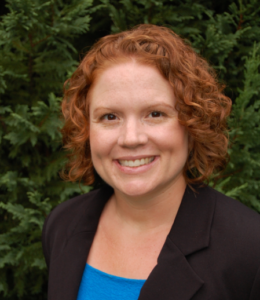

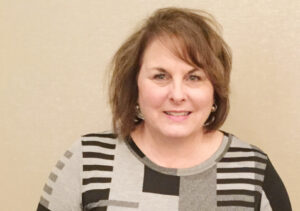
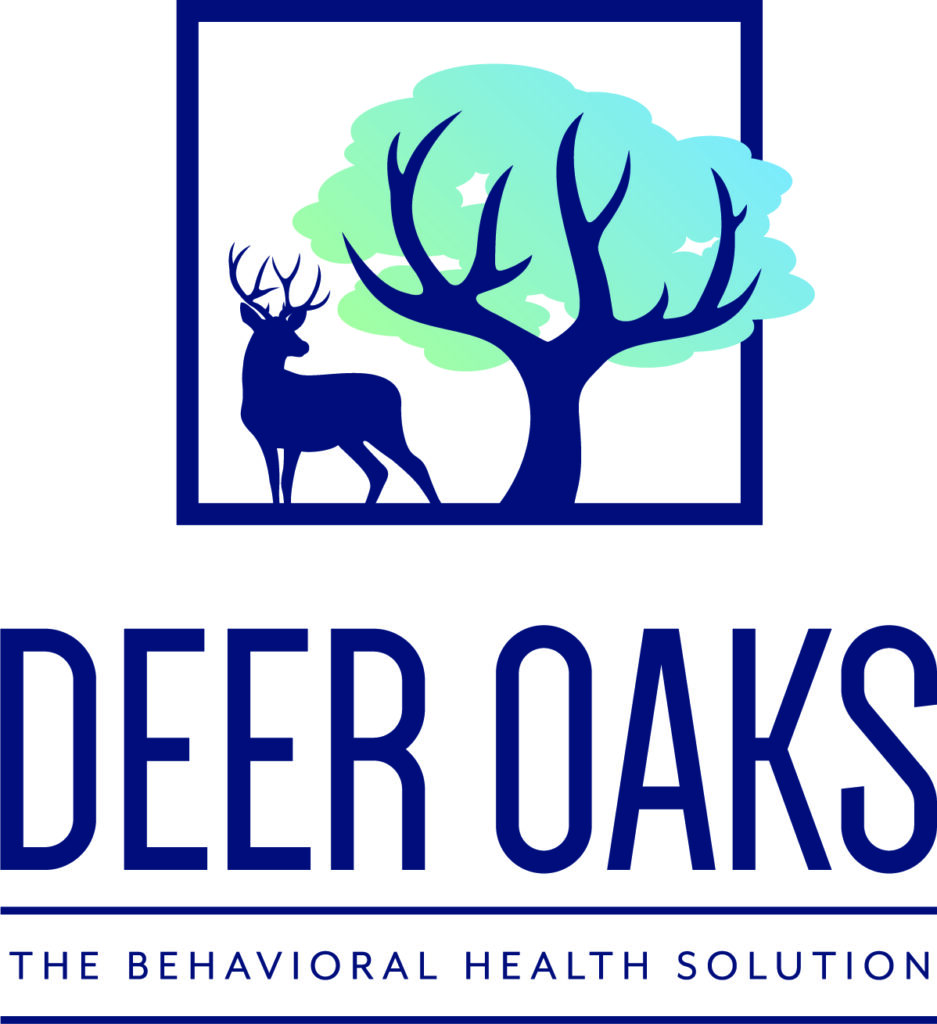


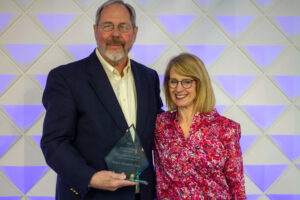 I am writing to nominate Dr. Kevin Krumvieda for the 2022 Phil Laughlin Meritorious Service Award. I met Kevin at an IPA conference shortly after I joined IPA in 1995. He welcomed me and took time to get to know me as a psychologist and a person. I now have the good fortune to work with him as a fellow member of the Iowa Psychological Foundation.
I am writing to nominate Dr. Kevin Krumvieda for the 2022 Phil Laughlin Meritorious Service Award. I met Kevin at an IPA conference shortly after I joined IPA in 1995. He welcomed me and took time to get to know me as a psychologist and a person. I now have the good fortune to work with him as a fellow member of the Iowa Psychological Foundation.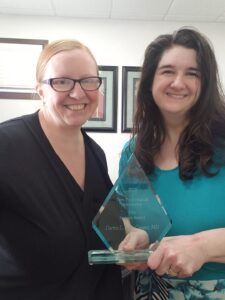 The movement for prescriptive authority for psychologists in Iowa is still in its infancy. The support from psychiatrists and other physicians is vital as psychologists who are certified to prescribe is necessary. As such, a psychologist pursuing a conditional prescribing certificate not only has to complete academic coursework which takes on average two to three years, but they have to complete a multidisciplinary practicum with at minimum work with a primary care provider and a psychiatrist. A total of 400 practicum hours and at least 600 patient encounters are required, along with the completion of a masters in clinical psychopharmacology and the passing of a licensure exam, the PEP. The number of hours dedicated by not only the psychologist in training but also a supervisor is extensive. Therefore, Dr. Cooper, Dr. Kopp, and Dr. Lonning would like to nominate Dr. Darbie Little-Cooper for the IPA Service Award.
The movement for prescriptive authority for psychologists in Iowa is still in its infancy. The support from psychiatrists and other physicians is vital as psychologists who are certified to prescribe is necessary. As such, a psychologist pursuing a conditional prescribing certificate not only has to complete academic coursework which takes on average two to three years, but they have to complete a multidisciplinary practicum with at minimum work with a primary care provider and a psychiatrist. A total of 400 practicum hours and at least 600 patient encounters are required, along with the completion of a masters in clinical psychopharmacology and the passing of a licensure exam, the PEP. The number of hours dedicated by not only the psychologist in training but also a supervisor is extensive. Therefore, Dr. Cooper, Dr. Kopp, and Dr. Lonning would like to nominate Dr. Darbie Little-Cooper for the IPA Service Award.


 The Membership Committee strives to increase member participation in activities that promote the IPA mission and Strategic Plan. A primary Membership Committee objective is to assist IPA’s standing committees in reaching their desired capacities. Over the past year, our Finance, Psychopharmacology, and Diversity and Social Justice committees have benefitted from the participation of some of the newest IPA members, including student members. This effort has been greatly appreciated. Meanwhile, the majority of IPA committees continue to seek members.
The Membership Committee strives to increase member participation in activities that promote the IPA mission and Strategic Plan. A primary Membership Committee objective is to assist IPA’s standing committees in reaching their desired capacities. Over the past year, our Finance, Psychopharmacology, and Diversity and Social Justice committees have benefitted from the participation of some of the newest IPA members, including student members. This effort has been greatly appreciated. Meanwhile, the majority of IPA committees continue to seek members.

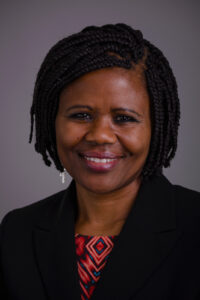 I was a nontraditional student at my undergraduate and graduate schools. In fact, I sought out psychology to answer specific personal questions as well as questions that I’d encountered in my work as a Franciscan nun. To summarize the content of my wondering mind I’d say at a personal level I wanted to know the following: a) who am I? b) why am I here? c) where do I go after I’m no longer here? From my work with young women in Cameroon I wanted to find out how to heal invisible wounds that manifest as struggles in interpersonal relationships especially in communal living situations. At the time I was thinking that most people can do okay within their families but if you have to interact with others who don’t know you the way family does, you need more.
I was a nontraditional student at my undergraduate and graduate schools. In fact, I sought out psychology to answer specific personal questions as well as questions that I’d encountered in my work as a Franciscan nun. To summarize the content of my wondering mind I’d say at a personal level I wanted to know the following: a) who am I? b) why am I here? c) where do I go after I’m no longer here? From my work with young women in Cameroon I wanted to find out how to heal invisible wounds that manifest as struggles in interpersonal relationships especially in communal living situations. At the time I was thinking that most people can do okay within their families but if you have to interact with others who don’t know you the way family does, you need more.